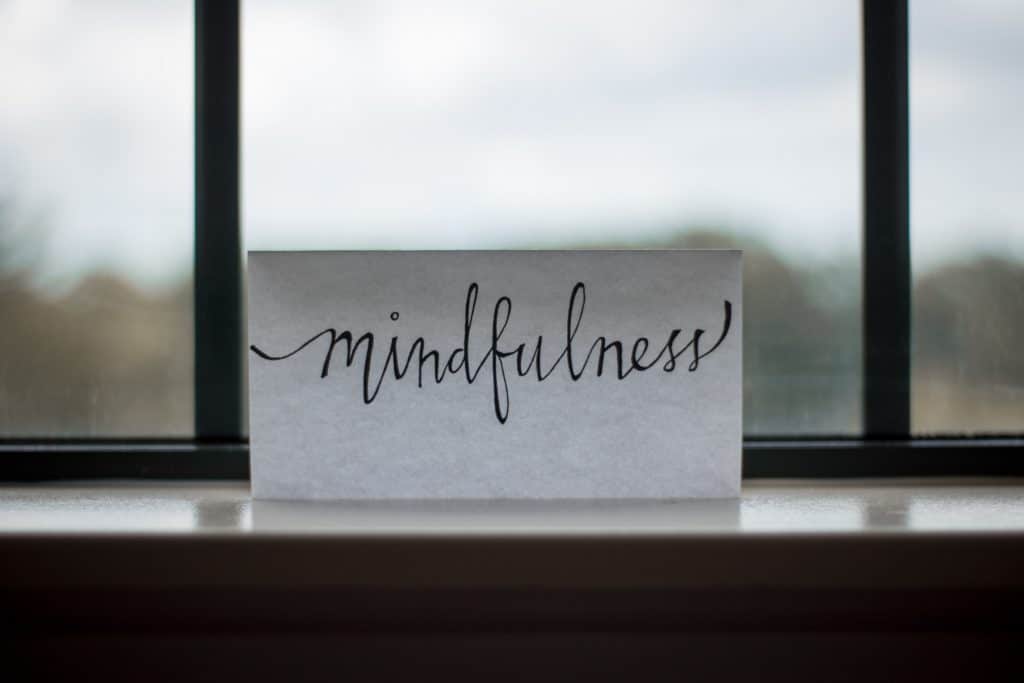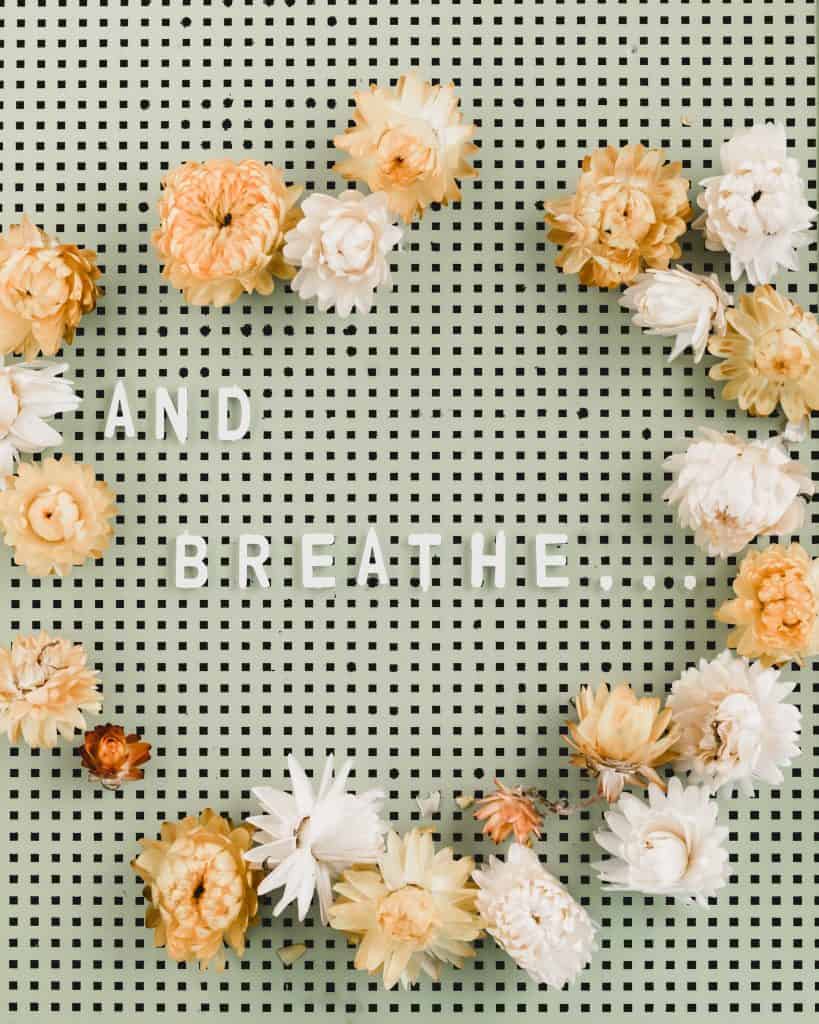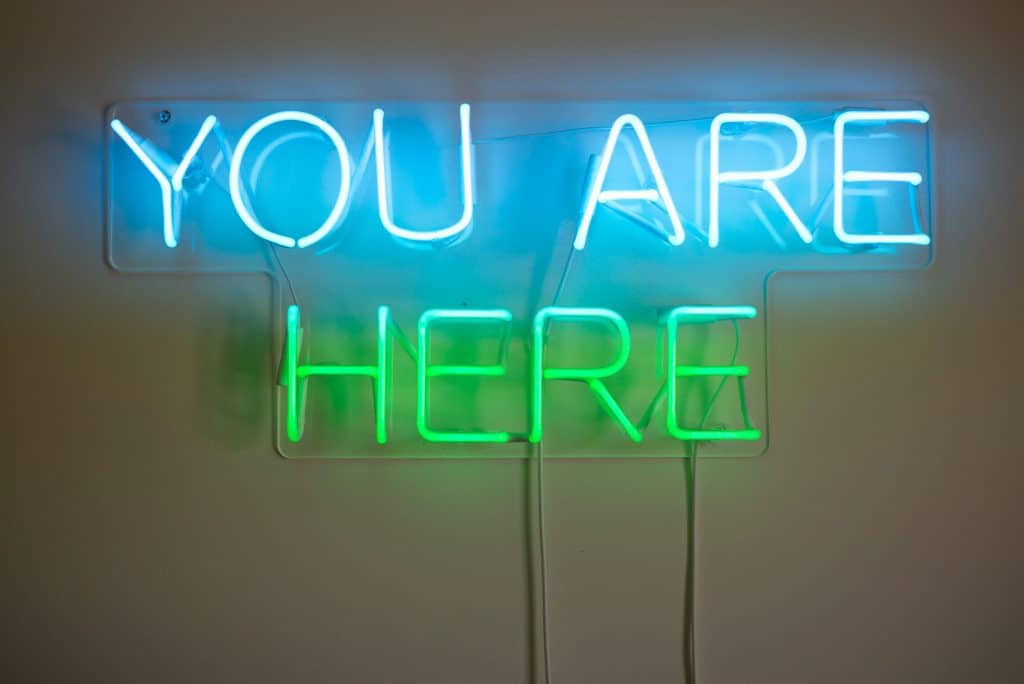
Let me start by saying that mindfulness is great. Many people find it supremely helpful. In fact, in a UK 2010 report on mindfulness 72% of GPs felt their patients with mental health problems would benefit from learning mindfulness meditation skills. And 86% of 2,007 people surveyed agreed that ‘people would be much happier and healthier if they knew how to slow down and live in the moment’. However, in recent years, mindfulness has become some kind of panacea. Suggested at the drop of a hat.
For more thoughts on how to achieve a slower pace in life read here.
The Mindfulness Panacea?

Moving house was undeniably one of the most stressful experiences I’ve encountered to date. And, whilst people meant well with their advice, they kept on recommending mindfulness to counter any stresses. For many it seemed an obvious solution. If one is stressed, one must practice mindfulness. Yet, whilst I have had some success with mindfulness. It’s not for everyone. In fact, many people baulk at the thought of mindfulness and it’s associations with stillness and meditation.
Mindfulness is not a panacea. The practice of which will not eradicate all stresses with the wave of a magic wand, or indeed, deep breathing for a few minutes. Don’t get me wrong, it certainly has it’s place in one’s self-care toolkit. And I encourage all and sundry to give it a try for a few weeks and see if it sticks. But it isn’t and shouldn’t be a replacement for the provision of support. Whether this be taking the time to really listen to someone’s stresses and responding in an appropriately empathetic way. Or the undertaking of help from a medical professional.
To Meditate or Not to Meditate
Suggesting mindfulness as a cure for everyone’s ailments. No matter who they are or the problem in question. Not only starts to look dismissive and insincere. As well as the aforementioned concern that it will be seen as a replacement for further support. But also stops people fully appreciating or benefiting from mindfulness. Although, it has to be said that mindfulness is not for everyone. No matter how you practice it. And that’s ok.

But my worry about mindfulness is this. It often comes with the assumption of meditation and deep breathing. And mindfulness meditation is certainly that. But that is not the whole picture. It is my belief that it is the meditation part of mindfulness which has many dismissing the practice out the gate. Citing disbelief that deep breathing will help. Fidgetiness. Inability to focus. And the list goes on.
But mindfulness is so much more than sitting cross legged on a cushion in stillness. At root it is about being in the moment. The best description I have heard for this is ‘be where your feet are’. Indulging your senses by taking a moment to be in the present moment. A Harvard study from 2010 found that people spend approximately 47% of their time not in the present moment. That’s almost half our time. And when you consider the amount of time we will also be sleeping. That leaves a scarce amount of time for living in the present.
So, if meditation is not for you. There are other routes into mindfulness. Whether that’s mindful colouring, a mindful walk in the park or indeed mindful eating. Any moment when you are actually in the moment counts. When I am attempting to be mindful, I try to achieve a state of flow. This idea from positive psychology encourages the complete immersion in an activity. To the extent that you are completely focused on your current situation. For myself, I know I’ve achieved a state of flow when a glance at the clock and what felt like 10 minutes can easily have been an hour or more.
For more thoughts on mindful practice and finding your flow read here.
What are your thoughts on mindfulness? Do you agree that we should be careful in portraying it as a ‘cure all’? Do you find it helpful or hurtful? Let us know below.

This was such a fantastic wee read. Personally I wish I could meditate but I just can’t. I can never settle my mind down enough.
It’s definitely not for everyone. Which is why I like to find alternative ways of practicing mindfulness
I definitely think it helps and can keep you from going into a state of panic, especially when there is no current fix for your stress. But when it is used in place of a solution to your stress, that’s when it can become counterproductive.
Really great insight. Thanks Laura
Interesting post! I usually do meditation and I just stop whatever I’m doing for a while. This helps me declutter my anxious thoughts. But it’s nice that you have this way of doing it, it’s interesting ^^,
Thanks Fiona! I have found meditation helpful at times but others less so. I think it’s about making use of the tools you have at your disposal
Great insight on mindfulness. I have found that meditation can make me stew more on my stressors, but things like walks/hikes or reading are great at helping me quiet my mind.
So great you’ve found things that work for you.
My partner and I talk about this a lot, because businesses and governments use this as a quick fix to avoid giving people the help they really need. Mindfulness is fine, and it has it’s uses, but real change would come with everyone living above the poverty line and everyone being able to have a proper work life balance
Very true. It’s not a substitute for proper help or a cover for providing support services.
i think society has made us feel like stressing over certain situations (like moving) as abnormal. i think promoting mindfulness & positivity is good but we can’t expect us all to be this way all the time. we are human & emotions & feelings are valid. i think instead we need to learn to be more accepting of all feelings & forgive ourselves for them.
i really liked this post and your insight on this topic.
I’ve never tried meditating before but usually what works for me is long walks! Wonderful post and take on mindfulness though. Thanks for sharing!
I love a good long walk. I used to walk to work pre-Covid. It really helped me get started on the day!
I used to meditate daily when I pulled up at work in the car park for a couple of minutes. It really helped kick start my day positively. I haven’t meditated for a while, so this post has made me set myself a reminder on my phone to do a little meditation during the day!
So glad it’s reminded you to get back into the practise!
This was really interesting to read. I love meditating but will openly admit that I don’t always feel I can do or feel I benefit from it. Sometimes, in certain situations, I’m just too stressed and need to find a different way.
Same! Sometimes a mindful walk can clear away the cobwebs in a way meditation can’t for me!
Great insights! I love meditating and find mindfulness extremely helpful but it should definitely never be marketed as a “cure all”. That’s pretty dangerous!
Agreed! Everything has it’s place!
This was super interesting. I practice meditation from time to time, and notice it doesn’t always have the desire effect. It makes more sense now on the why. I am happy to have read this!
I’m so glad it could shed some light 🙂
I love this post! I really love how you shed so much light on mindfulness and I definitely agree with you that a by people think it’s just closing your eye and meditating. But if one was to truly understand the depth of mindfulness, they will see how powerful of a tool it is and how it is so much more than just meditation. Thanks so much for sharing.
Thanks Rebekah! I think people have to find a way to make mindfulness work for them!
Really enjoyed this. I never thought of it this way but you’re so right: mindfulness should not come at the cost of a good support network. And when there’s external factors causing the stress, you need more than a few deep breaths. Love reading the balanced view of it all here – thanks!
Thanks Lindsey! I always try and give a bit of balance. Mindfulness definitely works for some people and can be an incredible tool. It just needs to be part of a bigger picture rather than the whole thing
I agree it’s not all about meditation. Although, I always feel envious of people that do meditate. I’ve tried it and can’t seem to push the mass amounts of thoughts from my head. I know it takes practice so maybe i just need to make more time to practice. Great post.
Same! I’d love to find peace in meditation. And I have on occasion. But sometimes my mind is too busy I need a different distraction to escape for a while
I love thinking about mindfulness alternatives to meditation. While I continue to work on meditation, there’s amaomething about actively trying to empty active thoughts that I continue to get stuck on!